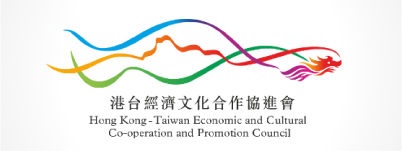Speeches

| SCMA's remarks at Chinese Manufacturers' Association |
|
The Secretary for Constitutional and Mainland Affairs, Mr Stephen Lam, tonight (August 30) attended a dinner organised by the Chinese Manufacturers' Association of Hong Kong to introduce the Green Paper on Constitutional Development and to listen to the views of the industry. Following is the summary of the main points he made: Mr Lam noted the significant contributions the manufacturing industry had made to the development of Hong Kong in the past few decades. He said that in 1962 when he entered primary school, Hong Kong's total import and export trade amounted to $11 billion. When he finished university in 1978, the Mainland was pushing ahead with the "Four Modernisations". This had brought about new development opportunities for Hong Kong's manufacturing industry. That year, the value of Hong Kong's total import and export trade rose to $117 billion. As the Mainland embarked on reforms and adopted the open-door policy, the development in the Greater Pearl River Delta (PRD) Region brought new development and business opportunities for Hong Kong. As a result, in 1997, Hong Kong's total import and export trade surged to $3.071 trillion. Soon after the establishment of the HKSAR in 1997, Hong Kong encountered challenges arising from the Asian financial crisis and the Severe Acute Respiratory Syndrome epidemic. Despite the economic downturn, our pace of development had not stopped. We still managed to attain $3.548 trillion for our import and export trade in 2003. In 2003, Hong Kong concluded the Closer Economic Partnership Agreement (CEPA) with the Mainland. This free trade agreement had contributed to our economic recovery, and had helped us enter a new phase of development. By the end of 2006, the value of Hong Kong's import and export trade increased further to hit $5.0608 trillion. Thus, in the last four decades, Hong Kong's commercial and industrial sectors have made a most significant contribution in enhancing Hong Kong's international trade by more than 400 fold -- thereby establishing Hong Kong's position as an international trading, financial and shipping centre, said Mr Lam. Mr Lam said that the industrial sector was also represented as one of the Functional Constituencies (FCs) in the Legislative Council (Legco) and the Election Committee. The Government would welcome the sector to present their views on constitutional development, he said. Mr Lam said that the publication of the Green Paper on Constitutional Development had delivered one of the key electoral promises of the Chief Executive. The fact that the Government had issued the consultation document 11 days after inauguration underlined its commitment to resolve the issue of universal suffrage within the five-year term. The pursuit of democracy has been debated in our community for more than two decades, since partial elections were first introduced to the Legco in 1985. Now that 10 years have passed since the Handover in 1997, it is time to set the course for Hong Kong to attain the ultimate aim of universal suffrage in accordance with the Basic Law. In the process of attaining universal suffrage and in designing a model for implementing universal suffrage, we must ensure that the basic policies of the State regarding Hong Kong and the four principles on constitutional development under the Basic Law could be fully implemented. These include: firstly, meeting the interests of different sectors of society; secondly, facilitating the development of the capitalist economy; thirdly, gradual and orderly progress; and fourthly, developments being appropriate to the actual situation in the HKSAR. Mr Lam said the Basic Law went beyond the Joint Declaration in its provisions on constitutional development. The Joint Declaration only prescribed that the legislature of the HKSAR shall be constituted by elections, and that the Chief Executive shall be selected by election or through consultations held locally. However, in 1990 when the Basic Law was enacted, the Central Authorities responded to the views of the Hong Kong community and stipulated universal suffrage as the ultimate aim to be attained. Mr Lam added that in attaining universal suffrage, we would act according to certain objective requirements and the constitutional framework. By constitutional design of the Basic Law, any change to our electoral system requires consensus among the three parties concerned, i.e. two-thirds majority support in the Legco, consent of the Chief Executive, and endorsement by the Standing Committee of the National People's Congress. The Government also hopes that any proposal for implementing universal suffrage receives majority public support. On the independent opinion polls conducted by universities and think-tanks, he said the Government would track the level of public support for various proposals closely. Mr Lam said the Government had been very open in setting out all key issues in the Green Paper. Options for the universal suffrage timetable include: 2012, 2017 or beyond 2017 for the Chief Executive; and 2012, 2016 or beyond 2016 for the Legco. Options for the composition and size of the nominating committee for the Chief Executive election include: forming the nominating committee by less than 800 members; forming the nominating committee by 800 members; and forming the nominating committee by more than 800 members, for example, 1,200 or 1,600 members. Options for the number of candidates to be put forth for Chief Executive election by the public include: 10 candidates or more; eight candidates at most; and two to four candidates at most. Mr Lam considered that, at this stage, the community should first strive to agree on the number of candidates which the nominating committee should put forth. The public would then have a clearer idea of the scale of the general election. Thereafter, detailed nomination procedures could be discussed and agreed upon. Another key issue is how the Legco's FC elections can be replaced. Options for this issue include: replacing the FC seats with district-based seats returned through direct election; retaining the FC seats, but changing the electoral method; and increasing the number of seats representing District Councils in the Legco. In discussing the roadmap and timetable for implementing universal suffrage for the Chief Executive and Legco, the Green Paper has also included suggestions that "universal suffrage for the Chief Executive should precede that for Legco" for the public to discuss. Mr Lam emphasised that, "The HKSAR Government has not taken a view on these issues. However, once consensus is attained on the above key issues, universal suffrage is achievable. Our hope is that thereafter candidates standing for Chief Executive and Legco elections will focus their manifestos on improvements to the economy, social services and livelihood issues - much in the same way as Western politicians run their election campaigns. Hong Kong will no longer need to agonise unceasingly over the issue of constitutional development." Mr Lam also talked about the challenges encountered by Hong Kong enterprises following the changes in the industrial development policy on the Mainland. He said that over the past two decades, Hong Kong businessmen had made substantial investments on the Mainland. Currently, there are about 80,000 to 90,000 Hong Kong enterprises in the PRD Region alone. Hong Kong investors own and operate more than 57,000 factories. The opportunities arising on the Mainland had not only opened a gateway for Hong Kong industries, but also contributed to the restructuring of Hong Kong's economy towards services industry-based. With the rising operating cost in the PRD Region and more stringent environmental requirements on manufacturers, "Hong Kong factories" had to upgrade and to restructure. The HKSAR Government had taken corresponding measures to assist Hong Kong enterprises to cope with the policy changes affecting the processing trade, and had encouraged them to expand their businesses into the Pan-PRD Region. Mr Lam said that our Economic and Trade Offices on the Mainland would work with Pan-PRD provinces and other regions to push ahead with the implementation of CEPA and to bring about a better investment environment for Hong Kong enterprises. Ends/Thursday, August 30, 2007 |





























